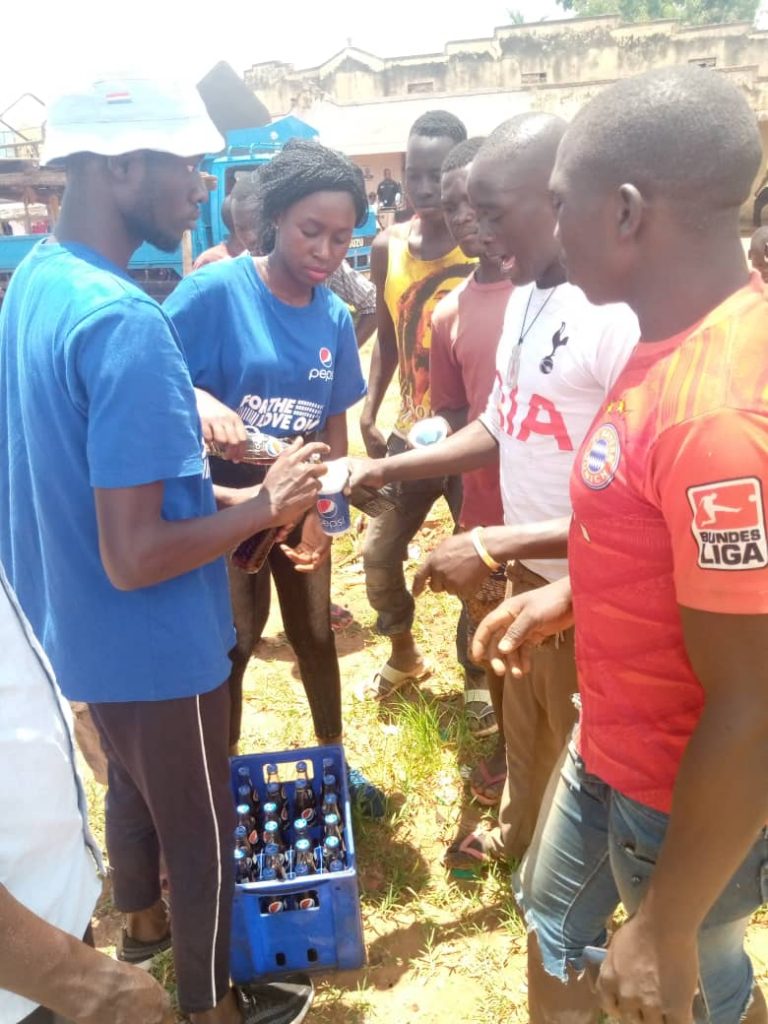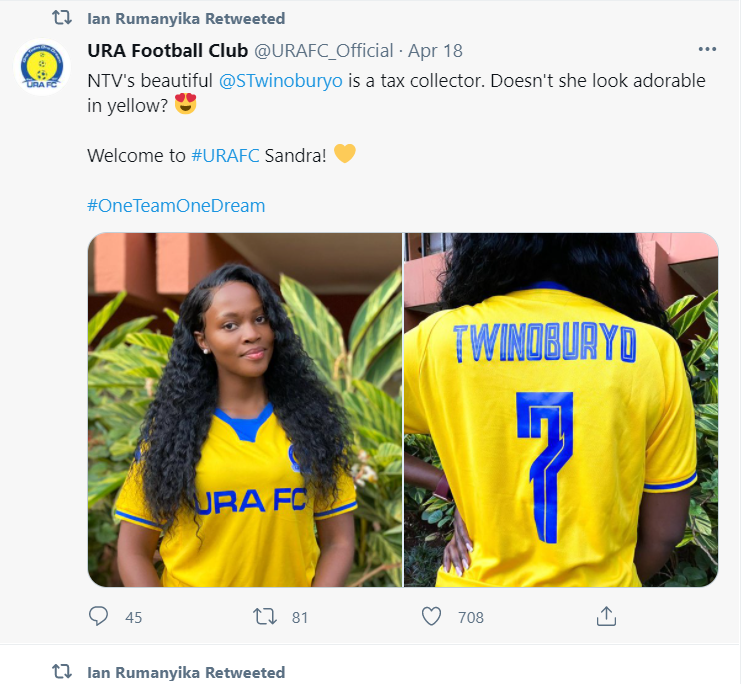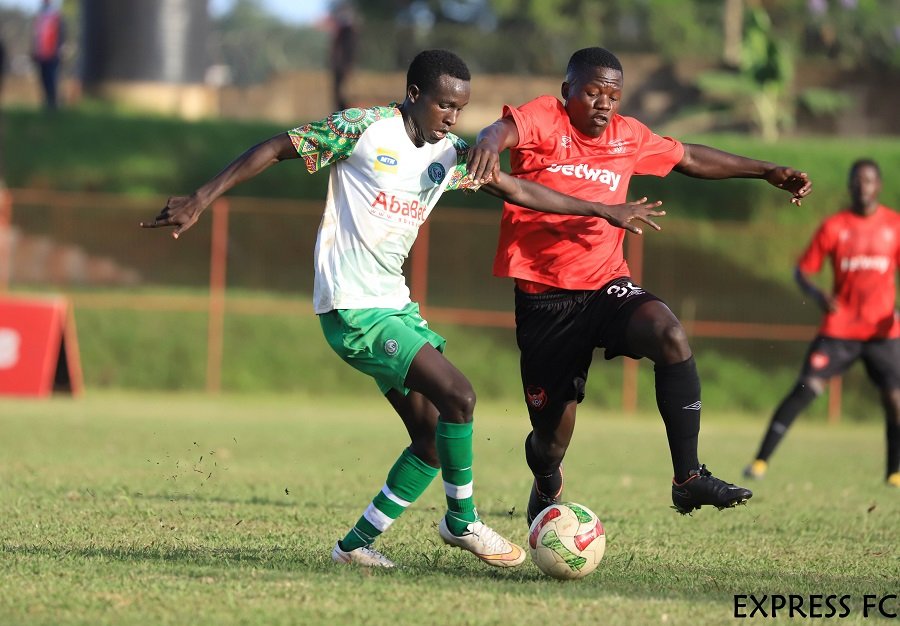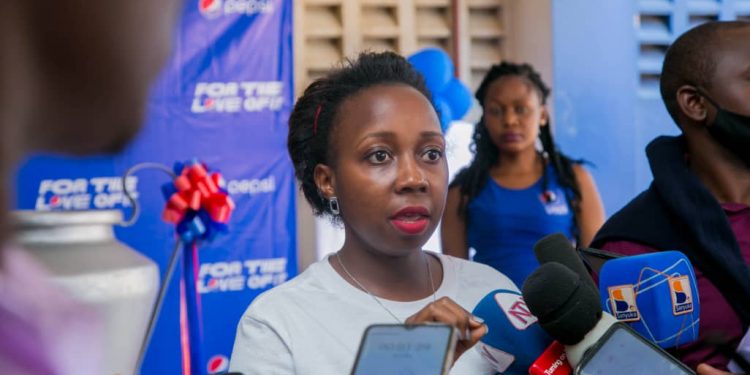The unsung potential of the Sports sector across Africa has triggered a wave of interest in the corporate sphere. The highly cluttered market environment has forced companies to explore more avenues of achieving effective communication in the market and corporate sponsorship of sports has henceforth become one of the fastest growing areas in market communications.
The billion-dollar industry has many companies on the drawing board deliberating on how to reap the benefits that range from brand visibility, revenue from events, direct sales from promotions and other intangible benefits like brand goodwill.
For entities like Pepsi-Cola International, the 2015 partnership with the UEFA Champions League has seen the league become stronger and more exciting each year. Today, it is the largest global platform that PepsiCo is a part of, and it uses the platform each season to create the best-in-class commercial campaigns. UCL is one of the world’s largest annual sporting events with well over 53% global interest. The League commands a cumulative global audience of well over 4.2bn and has over double the global reach of F1, generating over 110,000 hours of TV content in over 242 countries.
Crown Beverages Limited, the makers of Pepsi in Uganda run a simultaneous UCL campaign and as Allen Ssempa, the Corporate Communications Manager puts it, this is a season for rewarding Pepsi consumers through a multimillion countrywide promotion. This year’s campaign is dubbed Drink to the Champions and it has football international stars – Paul Progba, Jadon Sancho and Leonel Messi on board.
Over the last years, the company has been a part of sports activities and tournaments in the world of golf, university soccer, cricket, basketball, motor rally and it makes straightforward sense since it deals in a wide range of refreshments which are the sportsman’s best friend. Ssempa adds that while they run other community development initiatives, sports sponsorship comes easy because the activities have widespread appeal across all ages, areas and lifestyles, fetch easy brand affinity and it helps that media houses have taken an equal interest in the activities so mileage in terms of media coverage is a given.

Abratt, Clayton and Pitt (1987, p.6) have defined sponsorship as an agreement in terms of which a sponsor provides some aid to a beneficiary, which may be an association, a team or an individual, to enable the latter to pursue some activity and thereby derives the benefits contemplated in terms of its promotion strategy. The aid could be financial, or a guarantee of financial assistance or provision of expertise.
Take, a sporting event like the MTN Marathon, one of Uganda’s most attended events. The race that began in 2004 with just 1500 participants and has grown to a record 25000* in 2019 and along its 16-year journey has attracted partnerships (sponsorships) from key companies like Huawei, Stanbic bank, New Vision and Spedag Interfreight.
This is just one example, and in trying to figure out the new scramble for the Sports Pie, we spoke to several people in the industry to help us understand the why-now question.
This view is shared by Ian Rumanyika, Spokesperson Uganda Revenue Authority. The tax collectors through its Corporate Social Responsibility is the financial muscle behind URA FC, one of Uganda’s finest football clubs.
Mr Rumanyika says the Football club has offered benefits to the authority like saving them billions of shillings that would otherwise have been used in publicity drives. For them, Sports (to be precise Football) has presented them with a softer stance with which to deliver taxpayer education, as every match presents itself as a way for those attending to interact with material on tax education. It provides a more relaxed interaction between citizens and the tax collection body.
But these are not the only benefits being reaped. Ian attests to the improved institutional image and reputation through the URA FC Vehicle
Ms Ssempa explains that because sports also doubles as entertainment, it has in a way created itself as an avenue to give back to customers and yet still give a mileage to brands.
She cites UEFA Champions League partnership which is one of the biggest staples in the Sports Calendar.

We, of course, cannot shy away from the effects of COVID-19 on the Sports Sector, and the scaling down or in most cases the total ban on fans attending games, in-stadium. Allen says they have had to re-engineer the reward system for UCL as key staple rewards like taking select winners for the Finale is no longer possible.
But even this hasn’t dampened the mood of consumers who will be walking away with cash prizes and, instant wins.
And here-in lies the potential for corporates, that with a product or service and putting it in the right sector, you can accomplish more than your PR budget can accomplish in a year.
Joseph Collins Ssemmanda, General Secretary of Uganda Woodball Federation in an article says commercialization of Sports, is the new wave for the sustainability of Sports.
The grand question becomes how do we weave the interests of Corporates and the growth of Sports and ensure its mutually beneficial for all stakeholders involved?
He sees, the answer in more Corporate Companies investing through sponsorships which both build the Sports but also transform the economy.
Rumanyika on Sponsorships for sustainability says, for them as a tax body, but also a government entity, finding the right partners is very key. He says you need to ensure that whoever is coming on board aligns with your values as a company.
CBL’s Ssempa agrees with this notion saying it is easier investing in Federations who then, in turn, invest in their teams. That way you are investing in the collective growth of the Sport.

Mr. Joseph Collins Ssemmanda the Ndejje University Senior PRO and General Secretary of Uganda Woodball Federation says every sport in Uganda that has an annual activity plan full of activities has an opportunity to generate income through sponsorships hence transforming our economy through sports.
The future of Corporate Investment is bright, The tax body has seen the potential URA FC has and the plan is to invest in the future of Sport. They are already looking at a training Academy for various Sports, building a Sports complex and stadium is also on the future.
Sports Journalist Clive Kyazze says the foray of corporate companies, is a more than great initiative, but consistency is key on the part of these companies, it is more than getting your logos on Jerseys, Bottles and caps. It is a commitment to grow with the brand, that iss where the real mileage is.












